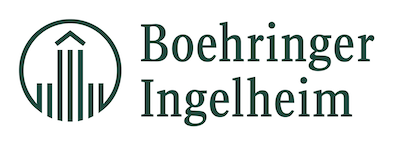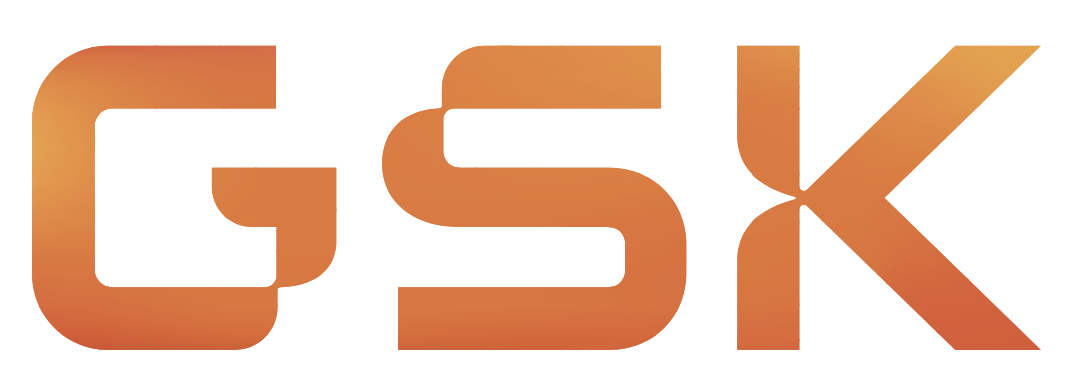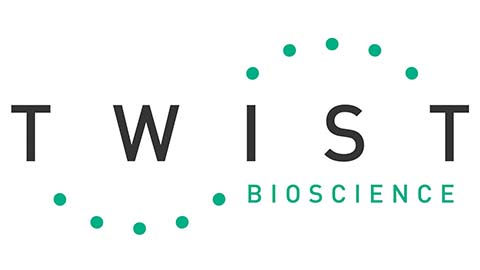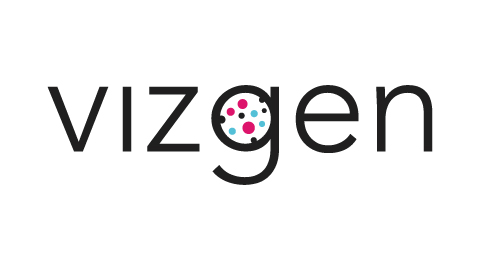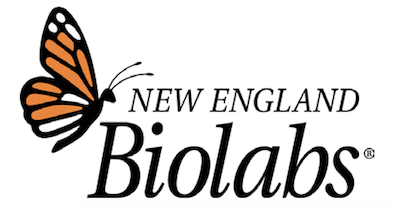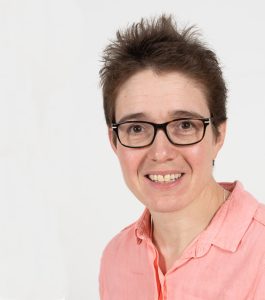
Charlotte Deane
University of Oxford
UK
EMBO Workshop
This conference will take place at EMBL Heidelberg, with the option to attend virtually.
The field of computational structural biology is undergoing a revolution. AlphaFold, a program based on Artificial Intelligence (AI), has transformed the structural modeling of proteins and protein complexes by reaching accuracy similar to experimental structures. Over 200 million structural models have already been released in AlphaFold Database. Following AlphaFold, other protein modeling programs proliferated from researchers worldwide. AI has started advancing RNA modeling too. The wealth of protein models has sparked an explosion of new tools for structural analysis and structure-based function assignment. Scientists from other fields, such as system biology, incorporate AI-based structure prediction in their pipelines. In parallel, molecular dynamics simulations push the limits of accuracy and size of what can be simulated. Protein and drug design are being transformed thanks to new geometric AI methods and the availability of structural models for almost any drug target.
With this “Cambrian explosion” of computational structural biology, this event aims to become a so-far missing major dedicated conference. Our conference will update on the impact of AI-based structure prediction, provide a forum to present new methods and applications, build a wider community by integrating the new scientists now massively joining the field, and open a platform to discuss future directions and opportunities.
Please see EMBL’s COVID-19 safety recommendations if attending the on-site event.

University of Oxford
UK
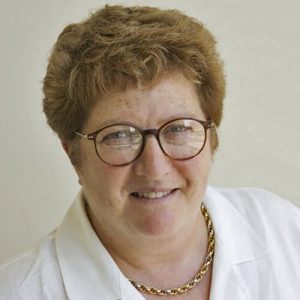
University of Illinois at Urbana-Champaign
USA
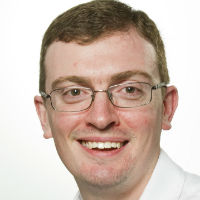
University of Queensland
Australia

Seoul National University
South Korea
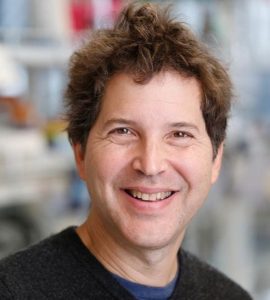
University of Washington
USA
(Virtual speaker)
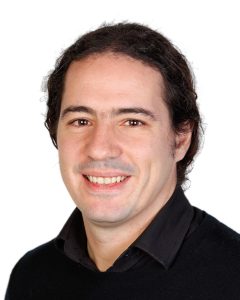
ETH Zürich
Switzerland
Utrecht University
THe Netherlands
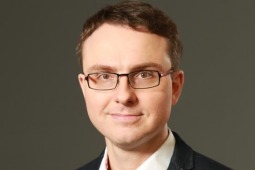
International Institute of Molecular and Cell Biology in Warsaw
Poland
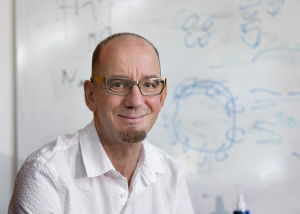
Stockholm University
Sweden
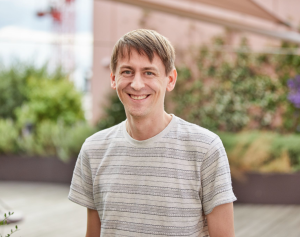
DeepMind
UK
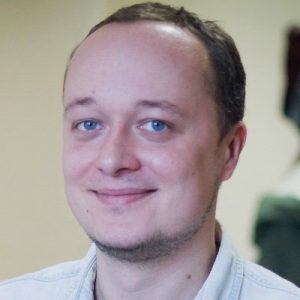
Małopolska Centre of Biotechnology UJ
Poland
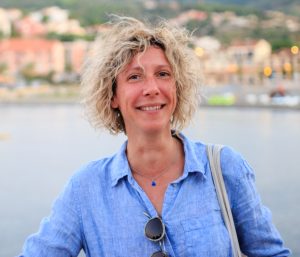
Sorbonne Université
France
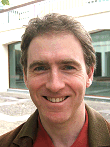
University of Bristol
UK
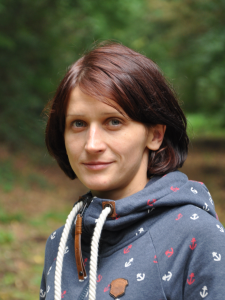
Max Planck Institute of Biophysics
Germany
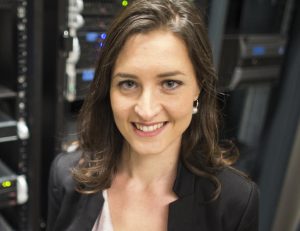
University of California Riverside
USA
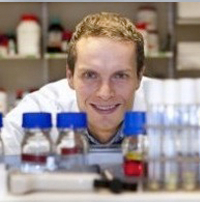
Technical University of Berlin
Germany

University of California, San Francisco
USA
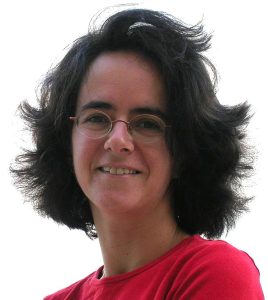
Hebrew University of Jerusalem
Israel
(Virtual speaker)
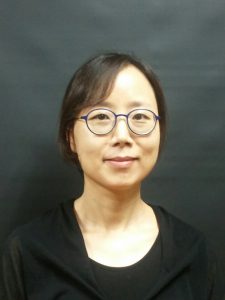
Seoul National University
South Korea
(Virtual speaker)
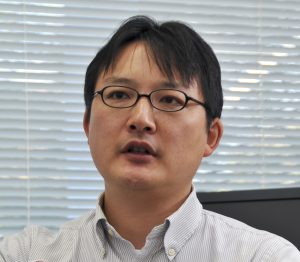
RIKEN Cluster for Pioneering Research
Japan
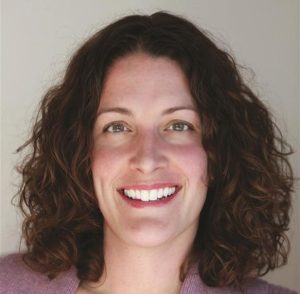
University of California, San Diego
USA
EMBL Hamburg
Germany
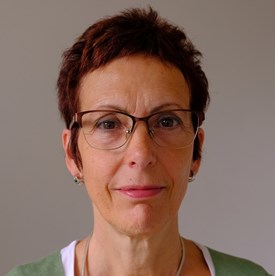
University College London
UK
Got something to say? Tweet it! #EMBOComp3D
| Time (Europe/Berlin) | Session |
|---|---|
| 11:30 – 13:00 | Registration and light refreshments |
| 13:00 – 13:10 | Opening remarks |
| Session 1: Modeling proteins and nucleic acids Session Chair: Sameer Velankar – EMBL-EBI, UK | |
| 13:10 – 13:40 | Building on AlphaFold John Jumper – Google DeepMind, UK |
| 13:40 – 14:10 | Protein Structure and Interaction Prediction using RoseTTAFold Minkyung Baek – Seoul National University, Republic of Korea |
| 14:10 – 14:25 | Cryo-OrbiSIMS enables accurate 3D modelling of native RNA structures at atomic resolution Aditi Borkar – University of Nottingham, United Kingdom VIRTUAL TALK |
| 14:25 – 14:40 | Integrating physics in deep learning algorithms: a force field as a PyTorch module Gabriele Orlando – KU Leuven, Belgium |
| 14:40 – 15:10 | Searching the molecular spaces using neural network energy models Chaok Seok – Seoul National University, South Korea Not available on demand VIRTUAL TALK |
| 15:10 – 15:40 | Computational modeling of RNA 3D structures and interactions – with and without the use of experimental data Janusz Bujnicki – International Institute of Molecular and Cell Biology in Warsaw, Poland |
| 15:40 – 16:10 | Coffee Break + Meet the speakers |
| Session 2: Modeling complexes Session Chair: Zoe Cournia – Biomedical Research Foundation of the Academy of Athens, Greece | |
| 16:10 – 16:40 | Towards a complete structural map of the human proteome using AlphaFold Arne Elofsson – Stockholm University, Sweden |
| 16:40 – 17:10 | Modeling protein-peptide complexes Ora Schueler-Furman – The Hebrew University of Jerusalem, Israel VIRTUAL TALK |
| 17:10 – 17:25 | Biophysics-aware machine learning models for pMHC-TCR binding prediction Martin Culka – Columbia University, USA |
| 17:25 – 17:40 | End-to-end deep learning model for accurate and high-throughput prediction of antibody-antigen complexes Dina Schneidman – The Hebrew University of Jerusalem, Israel |
| 17:40 – 17:55 | Pairing interacting protein sequences using masked language modeling Damiano Sgarbossa – EPFL, Switzerland |
| 17:55 – 18:25 | Structural modeling of nuclear pore complexes Agnieszka Obarska-Kosinska – Max Planck Institute of Biophysics, Germany |
| 18:25 – 20:00 | Dinner at EMBL Canteen |
| 20:00 – 22:00 | Pub Quiz and drinks in Canteen |
| Time (Europe/Berlin) | Session |
|---|---|
| Session 3: Structural dynamics Session Chair: Rommie Amaro – University of California, San Diego, USA | |
| 09:00 – 09:30 | In Situ Computational Microscopy of SARS/CoV2 Rommie Amaro – University of California, San Diego, USA |
| 09:30 – 09:45 | Multiscale computer simulations reveal the role of membrane, protein and water dynamics in energy production in mitochondria Vivek Sharma – University of Helsinki, Finland |
| 09:45 – 10:00 | Dissecting the structural basis behind higher specificity of FnCas9 protein Gayatri Panda – Indraprastha Institute of Information Technology, India |
| 10:00 – 10:30 | Multiscale Simulation for Drug resistance, Enzyme Design and Evolution Adrian Mulholland – University of Bristol, UK |
| 10:30 – 11:00 | Coffee Break + Meet the speakers + Meet the Editors |
| 11:00 – 11:15 | Computing residence time and investigating dissociation mechanisms of protein-protein interactions Giulia D’Arrigo – Heidelberg Institute for Theoretical Studies (HITS), Germany |
| 11:15 – 11:30 | Integrative modelling of glycans in the SARS-CoV-2 spike protein and beyond Mateusz Sikora – Jagiellonian University, Poland |
| 11:30 – 12:00 | The monomeric structures of GRB2 in solution by integrated modeling Yuji Sugita – RIKEN, Japan |
| 12:00 – 12:30 | Flash talks #55 Barone, Federico #73 de Vries, Ida #97 Loison, Claire #99 Hori, Naoto #107 Justyna, Marek #135 Mukherjee, Sunandan #141 Paladino, Antonella #149 Rinaldi, Francesco #159 Shor, Ben #165 Srivastava, Mitul #171 Talagayev, Valerij |
| 12:30 – 14:00 | Lunch, meet the speakers and job fair |
| 14:00 – 15:00 | Poster Session 1 (odd numbers) View poster listing here |
| 15:00 – 15:30 | Coffee Break and Meet the speakers and ERC Session “ERC funding opportunities” |
| Session 4: Structure-based function assignment and analysis Session Chair: Christine Orengo ‑ University College London, UK | |
| 15:30 – 16:00 | Computational Enzymology: towards using knowledge of structure and function to identify paradigms of evolution and to predict enzyme mechanisms. Janet Thornton – EMBL-EBI, UK |
| 16:00 – 16:15 | The geometry of hidden representations of protein language models Alberto Cazzaniga – AREA Science Park, Italy |
| 16:15 – 16:30 | Towards the design of targeted therapeutics based on microbial and antimicrobial amyloids Peleg Ragonis-Bachar – Technion – Israel institute of Technology, Israel |
| 16:30 – 17:00 | Applications of the new AI-based modeling methods to annotate function of microbial proteins on an evolutionary scale Tomasz Kosciołek – Jagiellonian University, & Silesian University of Technology, Poland |
| 17:00 – 17:15 | Dissecting the sequence and structure determinants of gpcr-gprotein selectivity via structural bioinformatics and machine learning Marin Matic – Scuola Normale Superiore, Italy |
| 17:15 – 17:45 | The impact of sequence variations on protein interactions and motions Elodie Laine – Sorbonne Université, France |
| 17:45 | Free afternoon |
| Time (Europe/Berlin) | Session |
|---|---|
| Session 5: Structural bioinformatics and experiments Session Chair: Jan Kosinski – EMBL Hamburg, Germany | |
| 09:00 – 09:45 | Keynote lecture: Can machine learning understand the physics of binding? Charlotte Deane – University of Oxford, UK |
| 09:45 – 10:15 | Towards accurate antibody-antigen complex prediction from sequence using AI and integrative modelling Alexandre Bonvin – Utrecht University, The Netherlands |
| 10:15 – 10:45 | Localizing intrinsically disordered regions of proteins in integrative structures of large macromolecular assemblies Shruthi Viswanath – Tata Institute of Fundamental Research, India Not available on demand |
| 10:45 – 11:30 | Coffee Break + Meet the speakers |
| 11:30 – 11:45 | Structure determination of an eIF2 dephosphorylation complex that terminates signalling in the integrated stress response Yahui Yan – University of Cambridge, United Kingdom |
| 11:45 – 12:15 | Visualising protein complexes inside cells Juri Rappsilber – Technische Universität Berlin, Germany |
| 12:15 – 12:30 | Inferring residue level hydrogen deuterium exchange with ReX Oliver Crook – University of Oxford, United Kingdom |
| 12:30 – 12:45 | Enhanced modeling of water molecules in dynamic Protein-Ligand structures Stephanie Wankowicz – University of California, San Francisco, USA |
| 12:45 – 13:15 | Flash talks #62 Brandner, Astrid #64 Bryant, Patrick #78 Duman, Özge #82 Parra, R. Gonzalo #94 Haddad Bassam #100 Jalalypour, Farzaneh #134 Molodenskiy, Dmitry #170 Surpeta, Bartlomiej #184 Wirnsberger, Gregor |
| 13:15 – 14:45 | Lunch, meet the speakers and job fair |
| 14:45 – 16:15 | Poster Session 2 (even numbers) View poster listing here |
| Session 6: Applications: drugs, protein design, and more Session Chair: Katja Luck ‑ Institute of Molecular Biology, Mainz, Germany | |
| 16:15 – 16:45 | Applications of computational methods to predict effects of disease-related mutations and design drug molecules David Ascher – University of Queensland, Australia |
| 16:45 – 17:00 | Predicting protein-membrane interfaces using molecular simulations and ensemble machine learning Zoe Cournia – Biomedical Research Foundation Academy of Athens, Greece Not available on demand |
| 17:00 – 17:30 | Coffee Break + Meet the speakers |
| 17:30 – 17:45 | Reality check – evaluating generative models for protein and ligand design Charlie Harris – University of Cambridge, United Kingdom |
| 17:45 – 18:00 | Identification of HIV broadly neutralizing antibodies using a Deep Language Model Chiara Rodella – University of Bern, Switzerland |
| 18:00 – 18:30 | Design of new protein functions using deep learning David Baker – University of Washington, USA VIRTUAL TALK |
| 18:30 – 20:30 | Dinner at EMBL Canteen |
| 20:30 – 00:00 | Conference party with DJ |
| Time (Europe/Berlin) | Session |
|---|---|
| Session 7: Structural systems biology Session Chair: Edward Marcotte – The University of Texas at Austin, USA | |
| 09:30 – 10:15 | Keynote lecture: 4D simulations of a growing minimal cell Zaida (Zan) Luthey-Schulten – University of Illinois at Urbana-Champaign, USA |
| 10:15 – 10:45 | From integrative structural biology to cell biology Andrej Sali – University of California, San Francisco, USA |
| 10:45 – 11:00 | Interactions of pathogen metabolic and virulence processes revealed through deep learning and coevolution Ian Humphreys – University of Washington, USA |
| 11:00 – 11:30 | Coffee Break + Meet the speakers |
| 11:30 – 11:45 | Combining AI structure prediction, mass spectrometry, and cryo-EM to unlock the mysteries of motile cilia Caitlyn McCafferty – University of Basel, Switzerland |
| 11:45 – 12:15 | Structure-guided prediction of mechanistic impacts of human protein missense variants Pedro Beltrao – ETH Zürich, Switzerland |
| 12:15 – 13:00 | Round-table discussion: The future of computational structural biology Janet Thornton, Giulia Palermo, Pedro Beltrao, Andrej Sali |
| 13:00 – 13:15 | Closing Remarks and Poster Prize |
| 13:15 – 13:45 | Packed Lunch and departure |
On-site registration fees include admission, conference materials, meals and coffee breaks. Participants are expected to book and pay their own accommodation and travel expenses.
Virtual registration fees include access to all of the talks (livestreamed and on demand) and facility to submit questions.
| On-site Academia | €450 |
| On-site PhD Student | €350 |
| On-site Industry | €750 |
| Virtual Academia | €200 |
| Virtual PhD Student | €150 |
| Virtual Industry | €250 |
A letter to support your visa application will be issued, on request, once payment of the registration fee is confirmed.
We recommend that you book your visa appointment as soon as possible, to avoid any delay with your visa application.
Accredited journalists may be eligible to register for complimentary press registration. Registrants may be required to provide accreditation or equivalent proof of press membership after registration. Please contact events@embl.de for more information. Please note that we do not offer complimentary registrations for editors of scientific journals.
Registration will be on a first come, first served basis. Your place can only be confirmed after payment of the registration fee. If you are added to our waiting list, please consider taking advantage of our offerings to participate virtually.
On-site participants: Types of payments accepted are international bank transfers and credit card payments.
Virtual participants: We are only able to accept card payments. In exceptional cases we can accept bank transfers. Please contact events@embl.de for details.
Only participants registering to attend the on-site event are eligible to submit an abstract. Abstracts will not be accepted from virtual participants.
After registration you can submit your abstract via a separate link that will be provided in the email confirmation. Alternatively, you can access the link on the confirmation page directly after registering. The same login credentials are used for both processes.
Please note:
Abstract body: The limit of 2000 characters refers to manually typed text and excludes spaces. If an error occurs try using a different web browser (preferably Google Chrome or Mozilla Firefox).
If you copy-paste the text into the form, hidden formatting might still be included which may cause the text to exceed the 2,000 character limit resulting in an error message. We recommend you clear all formatting before pasting in the text.
If you have special symbols in your text, make sure you are using Unicode characters, otherwise these will not be recognised.
Title: The title should not exceed 20 words. Only the first word of the title should start with a capital letter and the rest should be lowercase.
Authors and affiliations: Please fill in the author’s details as requested in the online form. The compulsory fields are: First Name, Last Name, Organisation Name (Affiliation or Company), Country and Email.
Kindly mark only one author in the role of First Author and please don’t forget to indicate who will be the Presenter.
Please enter your co-authors correctly via the system by adding accounts together with their organisation/institute. Do not copy-paste them into the body of the abstract text, as they will not be indexed in the abstract book.
Presentation types: When submitting your abstract, you can apply for an oral or poster presentation. A selection process will take place with the results announced 2-3 weeks after the abstract submission deadline.
For detailed instructions on how to submit a conference abstract, follow the instructions provided in this video.
Please check our FAQs pages for further information on how to submit an abstract.
Limited financial assistance is provided by the EMBL Advanced Training Centre Corporate Partnership Programme and EMBO in the form of both registration fee waivers and travel grants. These are available for on-site participants at EMBL Conferences and EMBO|EMBL Symposia, and for on-site and virtual participants at EMBO Workshops. We are currently working on securing funding for all virtual participants, and ask that you please apply for financial assistance for both on-site and virtual participation.
Your place in the meeting is only confirmed by paying the registration fee, which is mandatory even when receiving a fee waiver.
The fee waiver will cover the registration sum that you have paid to attend the course or conference.
The travel grant will cover the cost of travel to an on-site event (airfare, train, bus, taxi, accommodation, visa, and/or registration fees*) and is provided up to specified caps which are normally as follows:
–up to €500 for any participant travelling to an EMBO Workshop.
–up to €1000 for any participant working in Chile, India, Singapore or Taiwan travelling to an EMBO Workshop.
–up to €700 for any participant working in Croatia, Czech Republic, Estonia, Greece, Hungary, Italy, Lithuania, Luxembourg, Poland, Slovenia, and Turkey travelling to an EMBO Workshop.
*Registration fees are only covered for EMBO Workshops
The organisers may reduce the grant cap to accommodate more participants. Recipients will be notified of their travel cap amount when they are informed of the outcome of their application. Original receipts must be provided with your signature for all costs incurred within two months of completion of travel. Scanned copies cannot be accepted.
For EMBO Workshop participants with children, there is the possibility to apply for a childcare grant to offset child care costs incurred by participants or speakers when participating at a conference. Eligible costs include fees for a baby-sitter or child-care facility, travel costs for a caregiver, or travel costs for taking the child to the meeting etc. Please note that priority will be given to early stage researchers. A maximum amount of €500 can be awarded per participant applying for an EMBO childcare grant. In order to apply for this grant for EMBO Workshops, you must be registered by the abstract submission deadline.
On-site participants
You may apply for financial assistance when submitting your abstract. In your application you will be asked to answer questions regarding why your lab cannot fund your attendance and how your attendance will make a difference to your career. Application for financial support will not affect the outcome of your registration application.
Virtual participants
If you are attending virtually, you can apply for financial assistance in the submission portal by the abstract deadline. Read the instructions on how to apply for financial assistance. Only submissions for financial assistance will be accepted. Presentation abstracts cannot be submitted here and will be declined.
In your application you will be asked to summarise your current work, answer questions regarding why your lab cannot fund your attendance, and how your attendance will make a difference to your career. Application for financial support will not affect the outcome of your registration application.
The scientific organisers will select the recipients of all financial assistance during the abstract selection process. Results will be announced approximately 6 – 8 weeks before the event start date, however for some events this may be delayed. Selection results do not impact your admission to the meeting. Selection is based on scientific merit, your current work or study location, the reasons for needing financial support, and the impact this event will have on your career.
Costs will be reimbursed after the meeting only once a reimbursement form and original receipts (from travel costs) have been received.
View our list of external funding opportunities and information on attending a conference as an event reporter.
For further information about financial assistance please refer to the FAQ page.
Accommodation is not included in the conference registration fee.
As further changes in our events are possible, you should book flights, trains and hotels with flexible options and favourable cancellation conditions.
The hotels below have rooms on hold for participants until 8 November 2023, in some cases at special rates. Please email the hotel directly, quoting the booking code CSB23-01 to confirm the exact price of the room.
Conference shuttle buses are free of charge for participants, and depart from designated bus stops near the hotels to EMBL and back, mornings and evenings.
Conference shuttle bus schedule
The bus stops for this conference are:
View Conference shuttle bus stops and hotels in a larger map. Please note that not every bus stop will be used for every event.
Address: EMBL, Meyerhofstraße 1, 69117 Heidelberg, Germany. For further information on getting to EMBL Heidelberg visit Public Transportation to the Venue. For information about accommodation and local transportation please refer to the FAQ page.
All meals and coffee breaks are included in the registration fee. Our catering staff will prepare a wide variety of vegetarian meals, meat and fish dishes, soups, pasta, fresh fruit and vegetables, as well as a variety of desserts.
Please wear your badge at all times when serving yourself.
No food or drinks are allowed in the auditorium.
There are lockers available next to the stairs leading down into the Auditorium. You will find some of those equipped with sockets to charge your smartphone/tablet etc.
In most places the electricity is 220 volts AC (50 cycles). An adaptor and a plug that fits the German socket may be needed for your appliances/laptop (i.e. American, Japanese, etc.). A USB charging station for electronic devices is available at the registration desk.
If you are interested in purchasing an EMBL souvenir (products presented in the glass display in the registration area), please ask at the registration desk for more information.
Please read EMBL’s COVID-19 safety policy for on-site events.
Do not smoke in any EMBL building.
Eating and drinking is prohibited in the Auditorium and all laboratories.
Do not enter any restricted areas or the laboratories unless instructed to do so.
If first aid is required …
In case of fire …
Beyond first aid…
Please remember to bring your own medication, if needed, to the conference. Note that the next pharmacy is a 4-minute drive from the EMBL, but for many medications you will be required to see a doctor to get a prescription.
Ensure in advance that your medical insurance will cover you during your visit in the event that you do need to see a doctor while in Heidelberg. In any case, the EMBL Course and Conference Office will assist you to get to the pharmacy and a doctor of your choice if necessary.
Wi-Fi is available on campus using the EMBL-Events network and the event specific password, which will be provided on site. The eduroam network (secure, worldwide roaming access service developed for the international research and education community) is also available.
‘’Lost and Found’’ items are kept at the registration desk until the end of the conference.
There are lockers available on-site to store your luggage, which require a 2 EURO coin to operate. There is another luggage room on level E0, which is free to use but remains unlocked during the conference.
There is a nursing room available in the ATC Rooftop Lounge on level A29.
During the conference, an EMBL Photographer may be taking photos. If you would not like to appear in these, please inform the photographer or a member of the Course and Conference Office.
We can help to print your boarding pass/train ticket. Please send it to events@embl.de and collect your print-outs at the registration desk.
There is a room for prayer, meditation and yoga located on level E0 behind the Auditorium. Please be respectful of others using the room.
A variety of activities in Heidelberg can be found on the website of Heidelberg Marketing.
During the event we provide conference shuttle buses to and from EMBL. In addition, there is the public bus 39A that serves the EMBL campus and taxis can be easily booked at any time. Information on the conference shuttle buses can be found on the individual event website and more detailed information on travelling to EMBL can be found on our Travel Information page.
| Hello | Hallo |
| Goodbye | Auf Wiedersehen (formal) Tschüss (informal) |
| Good morning | Guten Morgen |
| Good afternoon | Guten Tag |
| Good evening | Guten Abend |
| Good night | Gute Nacht |
| I’m sorry | Es tut mir leid |
| Excuse me… | Entschuldigen Sie |
| How are you? | Wie gehts? |
| I’m fine thanks. And you? | Mir geht es gut , danke. Und Dir/Ihnen? |
| What is your name | Wie heißen Sie? (formal) Wie heißt du? (informal) |
| My name is.. | Ich heiße.. |
| Do you speak English | Sprechen Sie englisch? |
| I don’t understand | Ich verstehe nicht |
| Please speak more slowly | Können Sie bitte langsamer sprechen |
| Thank you | Dankeschön |
| Where is the toilet? | Wo ist die Toilette? |
| Please call me a taxi | Bitte rufen Sie mir ein Taxi |
| How do I get to….? | Wie komme ich zum/zur…..? |
| A beer/two beers please | Ein Bier/zwei Bier bitte |
| A glass of red/white wine please | Ein Glas Rot/Weisswein bitte |
| The menu, please | Die Speisekarte, bitte |
| Is there a local speciality? | Gibt es eine Spezialität aus dieser Gegend? |
| I’m vegetarian | Ich bin Vegetarier |
| It was delicious | Es war hervorragend |
| The bill, please | Die Rechnung, bitte |
| I have a headache | Ich habe Kopfschmerzen |
| I have a sore throat | Ich habe Halsschmerzen |
| My stomach hurts | Ich habe Magenschmerzen |
| I’m allergic to | Ich bin allergisch gegen |
| I need a doctor who speaks English | Ich brauche einen Arzt, der englisch spricht. |
Please note that only on-site participants are able to submit abstracts and participate in the poster sessions.
We are using an event platform for this conference. More information about the platform will be shared ahead of the conference.
Additional information can be found in our Code of Conduct.
It is important to stay healthy and move around, especially when you are attending an event virtually. We have put together a few coffee break stretches and yoga videos in the conference platform for you to enjoy during the event.
Please use the Q&A function in the event platform.
If you have any other questions, you can go to the Help Desk in the event platform. Click on ‘more’ on the top menu and click Help Desk.
The programme is planned based on the Europe/Berlin time zone, unless otherwise stated. Please take your time zone into consideration when planning your attendance.
Please find additional information including FAQs, terms and conditions, COVID-19 safety policy and travelling to EMBL on our Information for participants page.
COVID-19 information for on-site events at EMBL Heidelberg can be found in our COVID-19 FAQs.
Media partners
Molecular Systems Biology, an EMBO Press journal
International Union of Biochemistry and Molecular Biology
FEBS Open Bio, a FEBS Press journal
Sponsorship opportunities
We offer a variety of event sponsoring possibilities, with the flexibility to select a set sponsorship package or combine individual sponsorship options to suit your event budget. Discounts are available for companies sponsoring multiple events at EMBL Heidelberg. View other conferences, or contact sponsorship@embl.de for further information on sponsoring possibilities.
If you are interested in becoming a media partner of this event, please visit our media partnerships webpage.
EMBL wishes to warn sponsors of EMBL conferences and courses of fraudulent schemes purporting to offer sponsorship opportunities on behalf of EMBL or affiliated with EMBL officials. One current scam campaign of which we are aware is conducted using the name ‘Judy Eastman’ (judy@gopcontact.a2hosted.com) and entails approaches to sponsors offering sponsorship opportunities on EMBL’s behalf. Please be kindly advised that all relevant communication regarding sponsorship of EMBL conferences, symposia and courses is handled by EMBL directly and is sent from an official EMBL account. EMBL does not work with any external providers on sponsorship acquisition.
Please also note that:
Suspicious communications purportedly from, for or on behalf of EMBL should be reported to EMBL at the following email address sponsorship@embl.de.
Want to let others know you’re attending this event? Take a look at our shareable media and feel free to use them in your social media channels or presentations.

Date: 6 - 9 Dec 2023
Location: EMBL Heidelberg and Virtual
Venue: EMBL Advanced Training Centre
Deadline(s):
Abstract submission: Closed
Registration (On-site): Closed
Registration (Virtual): Closed
Organisers:
Contact: Sophie Dutzi
EMBL Courses and Conferences are kindly supported by our Corporate Partnership Programme


